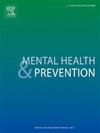Theory and psychometric development of a survey to measure attitudes towards self-comforting behaviours: The self-comforting attitude scale (SCAS)
IF 2.4
Q2 Medicine
引用次数: 0
Abstract
Objective
This study aimed to develop and preliminarily validate the Self-Comforting Attitude Scale (SCAS), a novel instrument designed to measure individuals’ attitudes toward self-comforting behaviours—specifically mindfulness, positive self-talk, self-reassurance, cognitive reframing, and personal rituals—crucial for emotional regulation and resilience in high-stress contexts such as academic environments.
Methods
The SCAS was developed through a five-stage process: (1) identification of conceptual domains informed by literature and the Self-Comforting and Coping Theory (SCCT) and Self-Comforting Attitude Theory (SCAT); (2) generation of an initial 40-item pool; (3) expert review and refinement by psychologists and stress researchers; (4) pilot testing with 50 university students in the West Midlands, UK; and (5) item reduction to a 10-item scale. Content and face validity were assessed using expert evaluation and participant feedback.
Results
Pilot findings indicate strong content and face validity. Items were rated highly for clarity and relevance. A priori power analysis confirmed sufficient power (80.57 %) to detect medium effect sizes (Cohen’s d = 0.57) with the given sample. Participants found the items easy to understand and reflective of their attitudes toward self-comforting strategies. No psychometric issues were identified in this preliminary phase.
Conclusion
The SCAS is a theoretically grounded, practically relevant tool for assessing attitudes—rather than frequency or efficacy—toward self-comforting behaviours. Unlike existing tools that focus on frequency or efficacy, the SCAS emphasizes attitudinal orientation. While further validation is needed, the SCAS represents an important innovation in resilience and coping research, with potential applications in clinical, educational, and research settings.
自我安慰行为态度调查的理论与心理测量学发展:自我安慰态度量表(SCAS)
目的开发自我安慰态度量表(SCAS),并对其进行初步验证。SCAS是一种新型的自我安慰态度量表,用于测量个体对自我安慰行为(特别是正念、积极的自我对话、自我保证、认知重构和个人仪式)的态度,这些行为对高压力环境(如学术环境)下的情绪调节和恢复能力至关重要。方法本研究分为五个阶段:(1)根据文献和自我安慰与应对理论(SCCT)、自我安慰态度理论(SCAT)对概念域进行识别;(2)生成初始的40项池;(3)由心理学家和压力研究者进行专家评审和提炼;(4)在英国西米德兰兹郡50名大学生中进行试点测试;(5)项目缩减至10项。采用专家评价法和参与者反馈法对内容效度和面孔效度进行评估。结果所有研究结果均显示较强的内容效度和表面效度。项目在清晰度和相关性方面获得了很高的评价。先验功率分析证实有足够的功率(80.57%)来检测给定样本的中等效应大小(Cohen’s d = 0.57)。参与者发现这些项目很容易理解,并且反映了他们对自我安慰策略的态度。在这个初步阶段没有发现心理测量问题。结论SCAS是一个有理论依据的、实际相关的工具,用于评估对自我安慰行为的态度,而不是频率或有效性。与关注频率或有效性的现有工具不同,SCAS强调态度取向。虽然需要进一步的验证,但SCAS代表了恢复力和应对研究的重要创新,在临床、教育和研究环境中具有潜在的应用前景。
本文章由计算机程序翻译,如有差异,请以英文原文为准。
求助全文
约1分钟内获得全文
求助全文
来源期刊

Mental Health and Prevention
Medicine-Psychiatry and Mental Health
CiteScore
2.10
自引率
0.00%
发文量
22
审稿时长
24 days
 求助内容:
求助内容: 应助结果提醒方式:
应助结果提醒方式:


